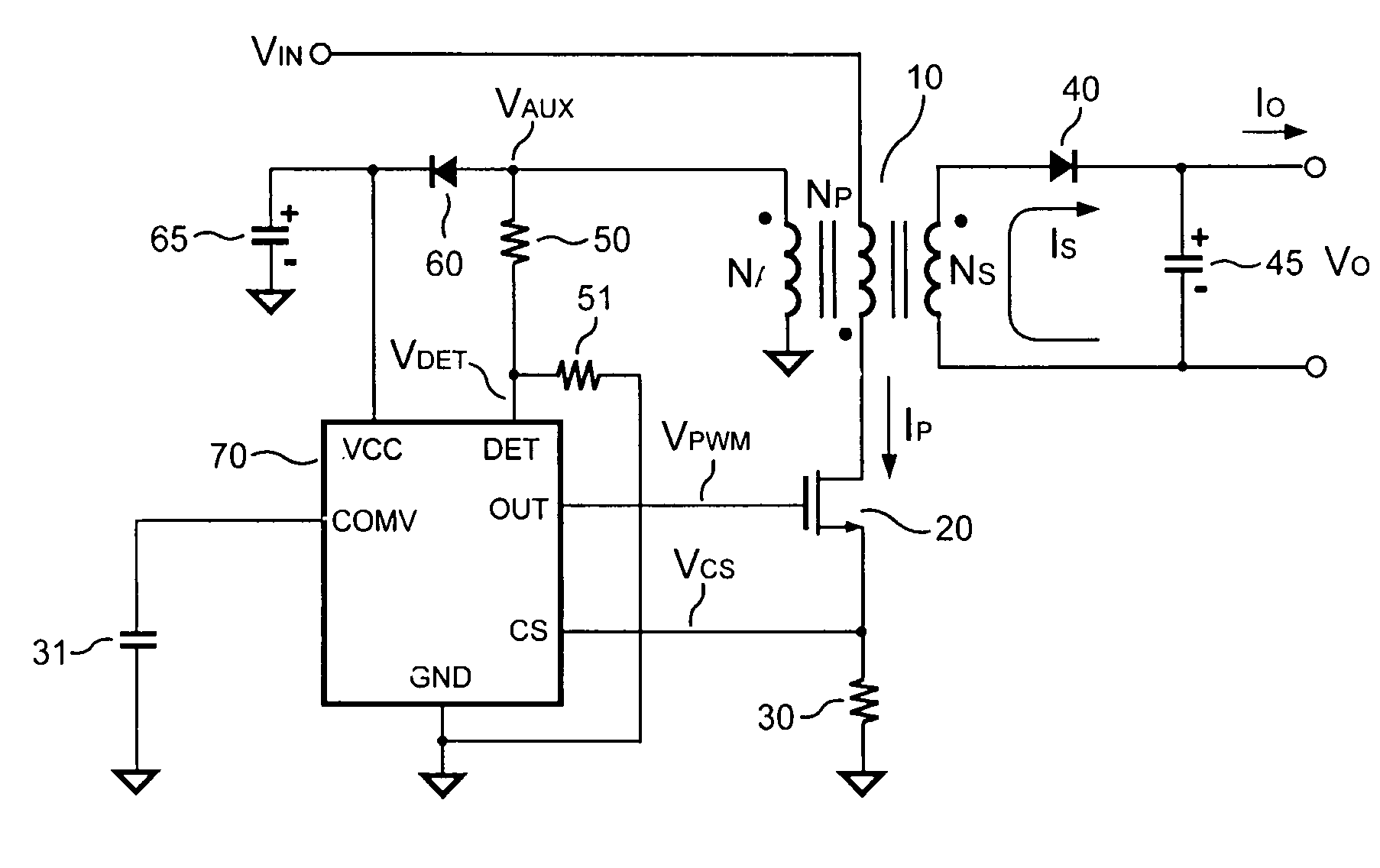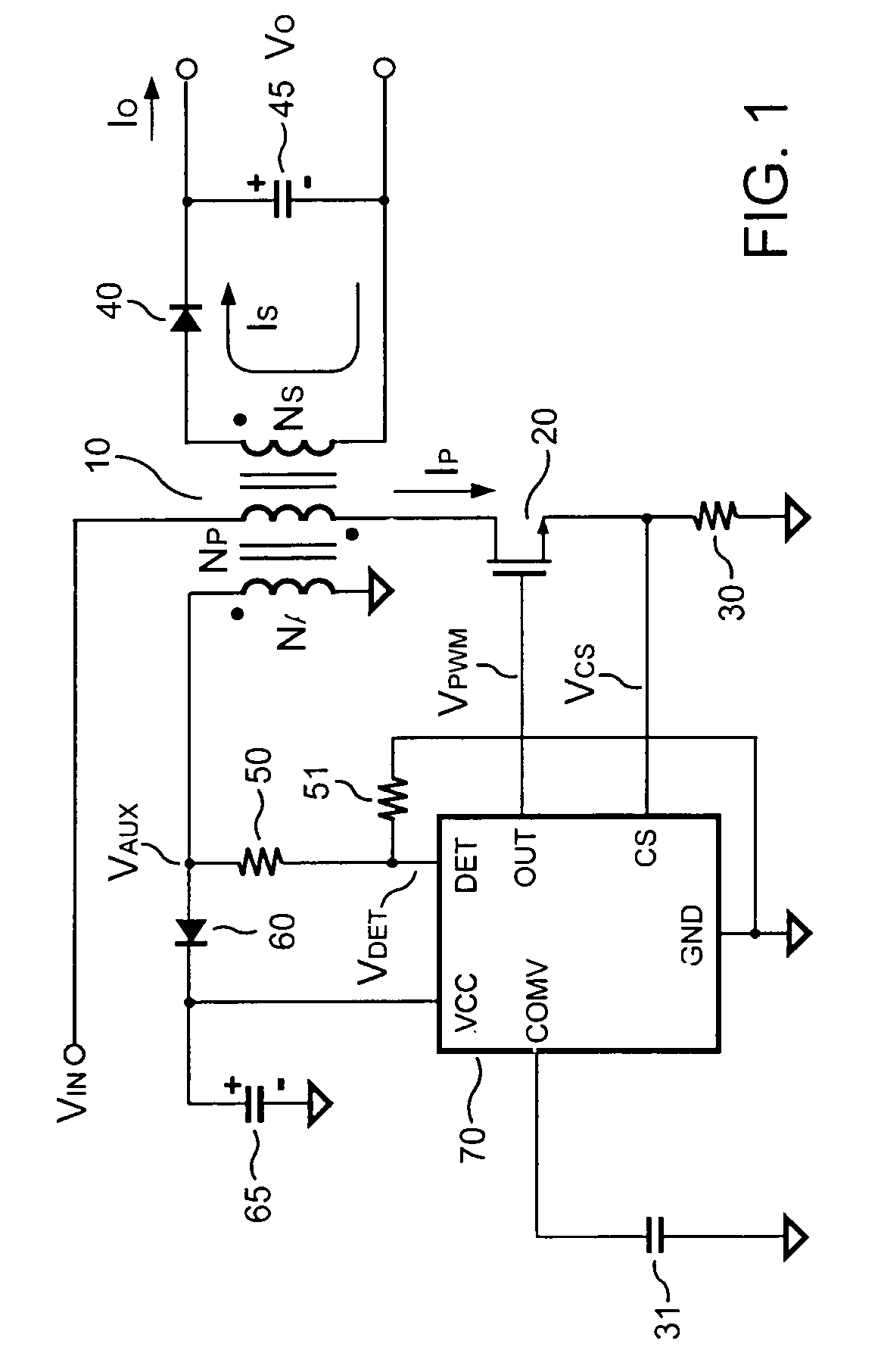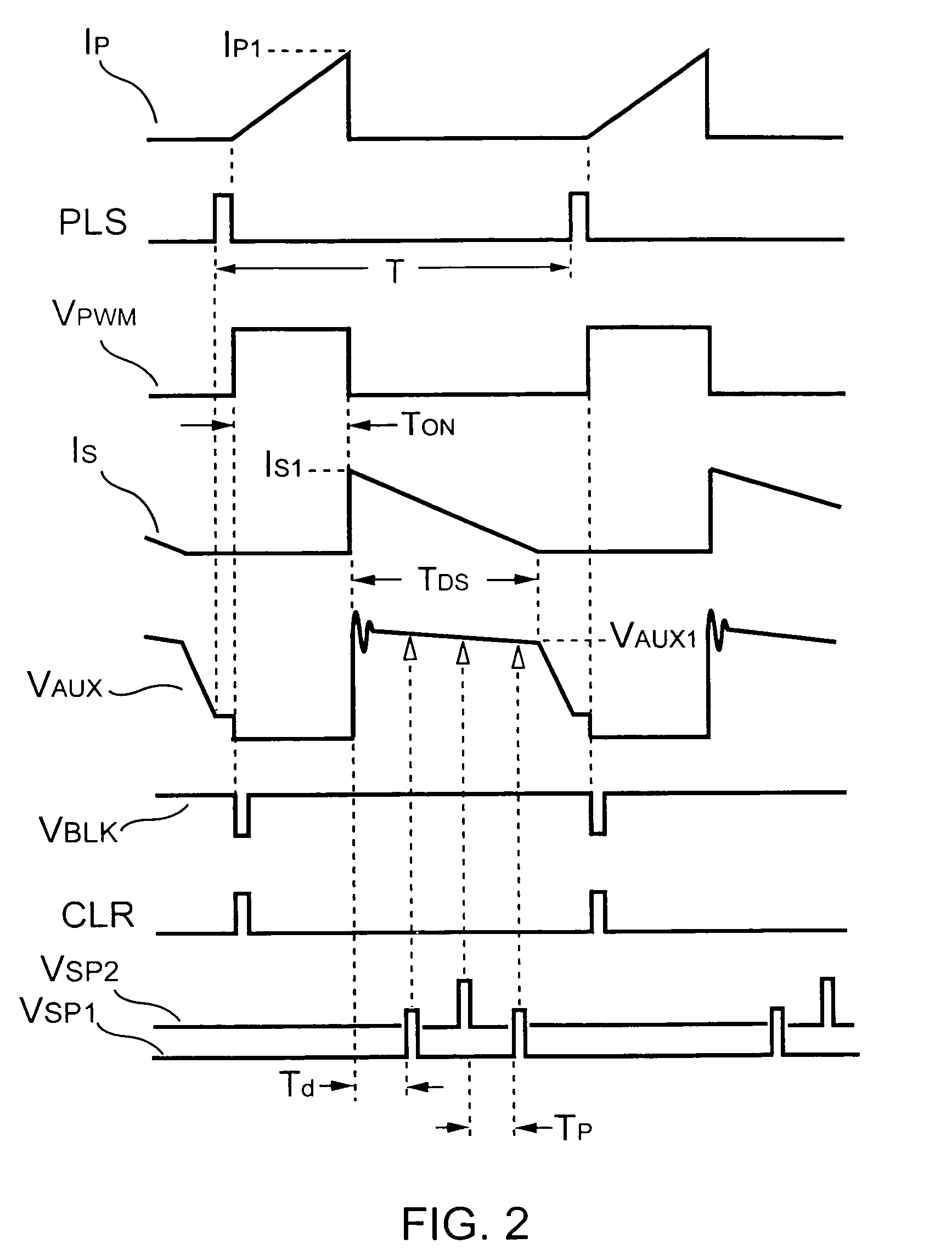Switching control circuit having off-time modulation to improve efficiency of primary-side controlled power supply
a technology of switching control circuit and off-time modulation, which is applied in the direction of electric variable regulation, process and machine control, instruments, etc., can solve the problems that the prior art cannot meet the standard of accurate output voltage and the power consumption at light load conditions is significantly high, so as to save power consumption and reduce power consumption under light load conditions
- Summary
- Abstract
- Description
- Claims
- Application Information
AI Technical Summary
Benefits of technology
Problems solved by technology
Method used
Image
Examples
Embodiment Construction
[0017]FIG. 1 shows a power supply. The power supply includes a transformer 10 comprising an auxiliary winding NA, a primary winding NP, and a secondary winding NS. The primary winding NP is coupled to an input voltage VIN of the power supply. In order to regulate an output voltage VO and / or an output current IO of the power supply, a switching control circuit includes a switching signal VPWM to control a switch, such as a transistor 20. A controller 70 generates the switching signal VPWM.
[0018]FIG. 2 shows various signal waveforms of the power supply in FIG. 1. As the switching signal VPWM is logic-high, a primary-side switching current IP will be generated accordingly. A primary-side switching peak current IP1 can be given by,
[0019]IP1=VINLP×TON(1)
[0020]where LP is the inductance of the primary winding NP of the transformer 10; TON is an on-time of the switching signal VPWM.
[0021]Once the switching signal VPWM is logic-low, the energy stored in the transformer 10 will be transferre...
PUM
 Login to View More
Login to View More Abstract
Description
Claims
Application Information
 Login to View More
Login to View More - R&D
- Intellectual Property
- Life Sciences
- Materials
- Tech Scout
- Unparalleled Data Quality
- Higher Quality Content
- 60% Fewer Hallucinations
Browse by: Latest US Patents, China's latest patents, Technical Efficacy Thesaurus, Application Domain, Technology Topic, Popular Technical Reports.
© 2025 PatSnap. All rights reserved.Legal|Privacy policy|Modern Slavery Act Transparency Statement|Sitemap|About US| Contact US: help@patsnap.com



